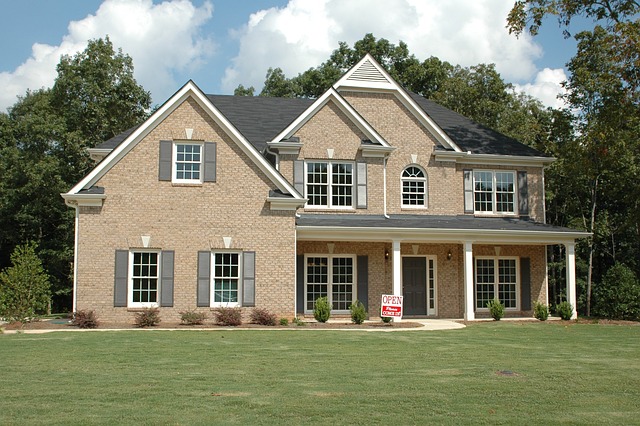VA home loans are an important benefit offered to qualified active-duty military personnel, veterans, and members of the National Guard and Reserves. These loans make housing more accessible to those who have served their country by offering enticing features like no down payment requirements and competitive interest rates. We’ll look at the qualification for a VA home loan in this article.
VA Home Loan Eligibility
Finding out your qualification for a VA home loan is the first step towards getting a VA home loan. There are standards for military service that you must fulfil in order to qualify for a VA loan:
- Veterans: If you are a veteran with an honorable discharge, you are qualified.
- Active-Duty Service Members: Those who are currently on active duty satisfy the requirements.
- Members of the National Guard and Reserves: If summoned to active duty before to the end of their minimum six-year service term, members of the National Guard or Reserves may be eligible.
- Survivors: VA home loan benefits may be available to spouses of military members who lost their lives while performing their duties or as a consequence of a disability related to their service.
Obtaining a Certificate of Eligibility (COE)
You must apply for and get a Certificate of status (COE) from the U.S. Department of Veterans Affairs in order to verify your status. A COE can be acquired through the following methods:
- Through a VA-Approved Lender: A lot of lenders can obtain a COE on your behalf because they have access to the Web LGY system.
- Online via the eBenefits Portal of the VA: Applying for your COE can be done via the VA’s eBenefits website. To begin the process, register or log in.
- Use VA Form 26-1880, “Request for a Certificate of Eligibility,” which can be downloaded from the VA website and submitted by mail or fax, as an alternative.
Financial Requirements
VA loans are renowned for having flexible credit requirements; nonetheless, lenders may have particular requirements and take into account things like:
- Credit Score: While each lender may have a different minimum requirement, VA loans normally have lower credit score requirements than conventional loans.
- Income and Debt-to-Income Ratio: In order to make sure you can afford the mortgage payments, lenders assess your income and debt-to-income ratio.
Property Requirements
A VA loan can only be used to buy property that satisfies specific conditions. The property has to meet the VA’s Minimum Property Requirements (MPRs) and be used as a primary residence. These specifications guarantee the home’s hygienic conditions, safety, and structural integrity.
Benefits of VA Home Loans
Getting a VA home loan has a number of advantages, such as:
- No Down Payment Needed: Buying a property doesn’t require a down payment, which lowers the cost of homeownership.
- Competitive Interest Rates: VA loans frequently have interest rates that are competitive, which means that monthly mortgage payments are reduced.
- No Private Mortgage Insurance (PMI): Borrowers can save money on VA loans because they do not need private mortgage insurance.
- Flexible Credit standards: VA loans are easier to qualify for people with less-than-perfect credit because they have more relaxed credit standards.
VA loan refinancing options
VA loan refinancing options give qualified veterans and military members the chance to change their current VA loans to better fit their budgetary objectives. There are two main VA loan refinancing program, each with special characteristics and advantages of its own:
Interest Rate Reduction Refinance Loan (IRRRL) – VA Streamline Refinance
The VA Streamline Refinance, also known as the IRRRL, is a simplified and streamlined refinance option that can lower your monthly mortgage payments, lower your interest rate, and perhaps save you money over the course of your loan. The following are the IRRRL’s main features:
- No Appraisal or Credit Underwriting
One of the main benefits of the IRRRL is that it usually doesn’t call for a thorough credit underwriting procedure or a new appraisal of the property. Compared to alternative refinance choices, this results in a quicker process and less documentation.
- No Out-of-Pocket Expenses
With the ability to include all closing costs and fees in the new loan, borrowers can refinance with a lower out-of-pocket cost.
- Lower Interest Rates
Securing a lower interest rate than your current VA loan is the main goal of the IRRRL. Long-term savings and lower monthly expenses may arise from this.
- No Cash-Out Refinance
The only purpose of the IRRRL is rate and term refinancing. This program prevents you from taking cash out of your home equity.
Cash-Out Refinance Loan
With the VA Cash-Out Refinance loan, you can take out a cash withdrawal from the equity in your house while also refinancing your current VA loan. You can use this money for a number of things, such house upgrades, debt relief, or other necessities. What you should know about the VA Cash-Out Refinance is as follows:
- Access to Home Equity
By taking out a larger loan than what you now owe, you can use this option to access the equity in your house. The gap between your present loan balance and your home’s appraised worth determines how much you can borrow.
- Flexible Use of Funds
You can use the money you get for anything—you can use it to fund home upgrades, pay off high-interest bills, pay for schooling, or meet any other financial necessity.
- LTV (loan-to-value) ratio
Due to particular LTV limits, you are unable to borrow the entire appraised worth of your house when using the VA Cash-Out Refinance. Depending on your lender, the maximum loan-to-value ratio might vary, although it usually hovers around 90%.
- Rates of Interest
VA Cash-Out Refinance loans have competitive interest rates, which makes them a desirable choice if you need access to cash and want to perhaps lower your interest rate.
Choosing the Right Option
Your financial objectives will determine which VA loan refinancing option is best for you. The IRRRL is probably a better option if your main goal is to lower your interest rate and monthly payments without taking out a loan. However, the VA Cash-Out Refinance is the best option if you need to access your home equity for certain financial requirements. It’s important to talk through your options with a VA-approved lender who can help you choose the right program for your particular situation and objectives.
PMI in home loans?
The term “private mortgage insurance,” or PMI for short, is associated with home loans, particularly conventional mortgages. Lenders are protected by PMI in the event that the borrower fails on the loan. Here’s how PMI in house loans is explained:
Purpose of PMI
The purpose of private mortgage insurance is to protect the lender, not the borrower. When a buyer puts less than 20% down on a traditional mortgage, it is usually necessary. The goal is to lessen the lender’s risk in the event that the borrower fails on the loan, as a smaller down payment exposes the lender to more possible losses.
How PMI Works
PMI is typically required by the lender when a borrower obtains a traditional mortgage with less than a 20% down payment. This extra expense is paid as a one-time premium at closing or added to the monthly mortgage payment. The amount of the down payment, credit score, and loan-to-value ratio are just a few of the variables that can affect PMI premiums.
PMI cancellation
In the past, borrowers were required to keep making PMI payments until they had 20% equity, calculated from the initial cost of the house. However, borrowers now have the option to ask for PMI cancellation under certain circumstances, thanks to the Homeowners Protection Act (HPA) of 1998:
Lastly on qualification for a VA home loan
Veterans and active military personnel who want to fulfil their dream of becoming homeowners might benefit greatly from VA home loans. Maximizing this benefit necessitates an understanding of the qualification for a VA home loan. In order to ensure a seamless and successful home purchase, veterans and military members should engage with a VA-approved lender who can offer advice and support throughout the loan application process.






